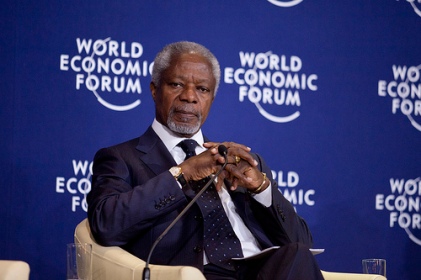The “robustly positive” Addis meeting hears how Africa’s rising leaders will build on the transformation of the continent.

The 22nd World Economic Forum on Africa, held at the Sheraton in Addis Ababa (Ethiopia) on May 9th-11th, called on Africa to maintain the growth momentum and the transformation that has revamped the continent’s landscape over the last 26 years. More than 700 delegates including seven Heads of State and Government, attended the Forum, an event that brings together governments, the private sector and civil society from Africa and 32 other parts of the world.
The World Economic Forum (WEF) is best known for its annual meeting at Davos in Switzerland where, at its January meeting, focus was on the poor state of the world economy – particularly that of Europe. In the WEF’s own words, the picture that emerged was “of a troubled world pressed for solutions across a number of fronts.” So, the annual Africa version of the event, where, as blog African Arguments said,the atmosphere was “robustly positive” makes a welcome change.
The theme – ‘‘Shaping Africa’s Transformation’’ – comes at a time when the continent has achieved an average 6% growth rate and seven of the 10 fastest growing economies in the world are from Africa.
Former United Nations (UN) Secretary General Kofi Annan (pictured) said Africa had achieved immense progress in the past 49 few years, although the continent was unlikely to meet the Millennium Development Goals as the 2015 deadline nears. African Development Bank (AfDB) president Donald Kaberuka said Africa’s story had changed dramatically. ‘‘We have witnessed tectonic shifts on the global economic landscape.’’ He did, however, warn the continent to be wary of the effects of the eurozone crisis, stressing the need to rebuild buffers that helped save the continent from the worst effects of the 2008 global crisis.
The continent’s dependence on commodities also needed to be watched – Africa is an exporter of primary goods. However, the fact that 40 countries on the continent had discovered such resources as oil and gas meant that the future looked bright. ‘‘These need to be managed,’’ said Mr Kaberuka.
Young African leaders called for greater optimism and transformative change to bring about a more positive image of their continent at the closing plenary session a. A call was made for current government leaders to think beyond single country interests and to collaborate on a regional basis to unlock entrepreneurship, according to a WEF press release.
In the closing session, entitled Shaping Transformation: Africa’s Rising Leaders, young panellists and audience participants were asked a series of questions about their visions for the continent and their sources of inspiration. Asked what myths about Africa needed dispelling, participants mentioned the ubiquitous ‘‘basket case’’ stereotype, the so-called lack of talent, that young people are misguided and irresponsible and that North Africans are not really Africans.
Pravin Gordhan, Minister of Finance of South Africa, said the session had been one of the most inspiring things he had heard in a long time. Gordhan said no transformation can happen without clear ideas of what society wants to achieve. ‘‘Africa is in very safe hands if these are the leaders of the future,’’ he added.
Brand South Africa CEO Miller Matola, said Africans “have not defined their economies and growth prospects to the world, but have allowed international bankers, political analysts and credit ratings agencies to take the initiative and write up – or sometimes belittle – the African growth story”. But, said Matola, Africans were now “more confident in their continent.”
“According to recent Ernst & Young research, three of the top five fastest-growing investors into new projects in Africa between 2003-2011 were the African economic powerhouses – South Africa, Nigeria and Kenya,” Matola said. South African investment into Africa grew at a rate of 64.8% in this period according to a report in SouthAfrica.info. “Africa offers the highest returns on investment of any region”, Matola said.

